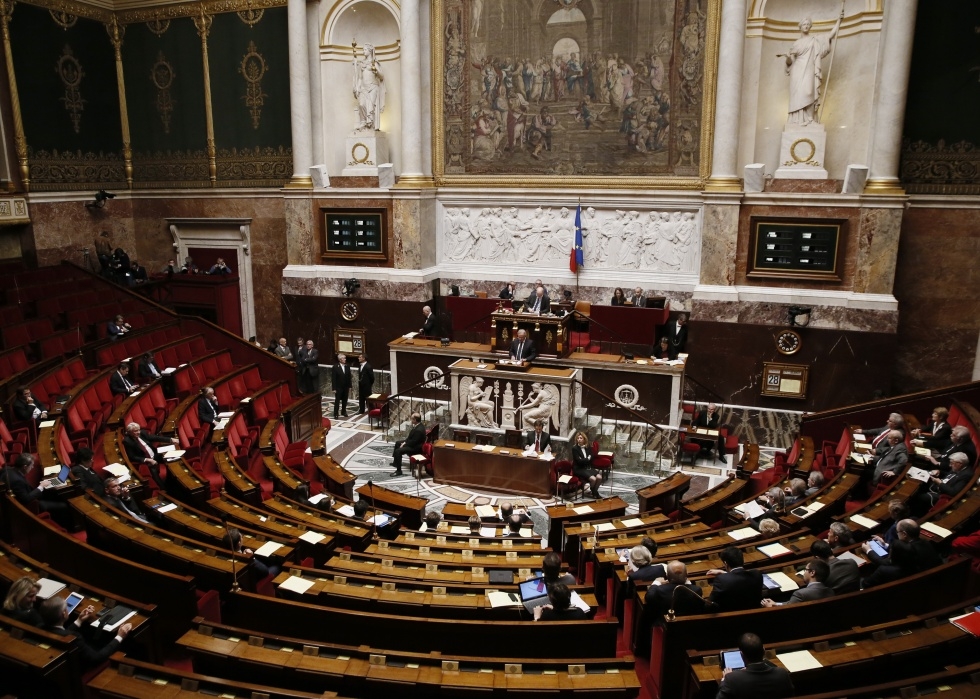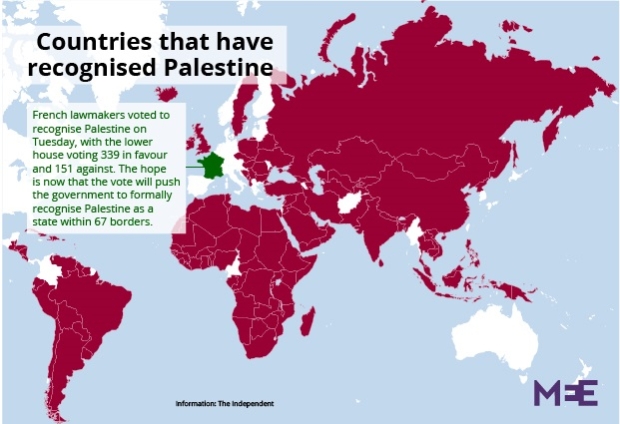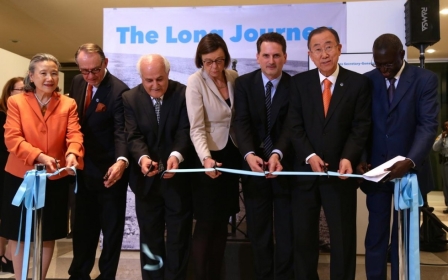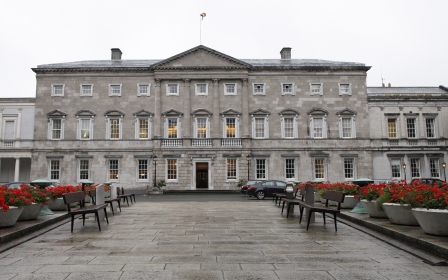French lawmakers recognise Palestine

Palestinian leaders have urged France to take decisive action after a parliamentary vote was passed in favour of recognising Palestine as a state on Tuesday, while also expressing "gratitute" to French lawmakers for the symbolic step.
"We call on the French government to translate its parliament's vote into action," Hanan Ashrawi, a senior leader in the Palestine Liberation Organisation (PLO), said in a statement, AFP news agency reported.
"If members of the international community are serious about the creation of the independent Palestinian state... they must undertake serious and concrete measures to end the occupation and to recognise the State of Palestine," she said.
French lawmakers voted to recognise Palestine on Tuesday, with the lower house voting 339 in favour and 151 against.
The motion is non-binding, but it is hoped that it will push the government to formally recognise Palestine as a state. The move comes as frustration appears to be growing in Europe over the stalled Middle East peace process.
The vote was expected to sail through, with Paris previously making it known that it had plans to recognise a Palestinian nation "when the time comes", arguing that a two-state solution to the Middle East conflict logically implies the recognition of Palestine.
It also comes after a similar resolution was approved by British lawmakers on 13 October and Spanish MPs on 18 November, and after Sweden's formal recognition of Palestine as a state on 30 October.
Meanwhile, the Israeli embassy in Paris denounced the vote as harmful to any future peace agreement. "Israel believes that the vote in the National Assembly... will reduce the possibility of achieving a deal between Israel and the Palestinians," a statement said. "Decisions of this nature harden the Palestinian position and send the wrong message to the people and the leaders of the region."
The text, introduced by the ruling Socialist party, "invites the French government to use the recognition of the state of Palestine as an instrument to gain a definitive resolution of the conflict".
Last week, Foreign Minister Laurent Fabius told MPs the United Nations Security Council was working on a resolution to relaunch and conclude peace talks.
"A deadline of two years is the one most often mentioned and the French government can agree with this figure," he said.
Fabius also said France was prepared to host international talks to drive the peace bid forward.
"An international conference could be organised - France is prepared to take the initiative on this - and in these talks, recognition (of the Palestinian state) would be an instrument [...] for the definitive resolution of the conflict," he said.
"If these efforts fail. If this last attempt at a negotiated settlement does not work, then France will have to do its duty and recognise the state of Palestine without delay and we are ready to do that," stressed Fabius, without fixing a deadline for such a recognition.
In a recent interview with AFP, he had also said that France would "obviously at a certain moment recognise the Palestinian state".
Israeli Prime Minister Benjamin Netanyahu has warned France that this would be a "grave mistake."
"Do they have nothing better to do at a time of beheadings across the Middle East, including that of a French citizen?" he told reporters in Jerusalem last month, referring to hiker Herve Gourdel who was executed by his jihadist captors in Algeria in September.
But the Socialist MP who has drafted the motion, Elisabeth Guigou, has said it is "a message of peace and friendship addressed to the two peoples, Israeli and Palestinian."
New MEE newsletter: Jerusalem Dispatch
Sign up to get the latest insights and analysis on Israel-Palestine, alongside Turkey Unpacked and other MEE newsletters
Middle East Eye delivers independent and unrivalled coverage and analysis of the Middle East, North Africa and beyond. To learn more about republishing this content and the associated fees, please fill out this form. More about MEE can be found here.





